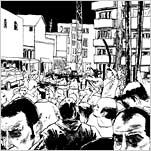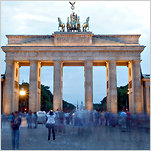WASHINGTON — Declaring the decline in its insurance fund an emergency, the board of the Federal Deposit Insurance Corporation imposed on Friday a one-time $15 billion increase in insurance premiums on the nation’s 8,300 banks.

Sheila C. Bair, chairwoman, said it was “a very tough call.”
When combined with a longer-term fee increase also approved on Friday, the new fees mean that banks must pay $27 billion to replenish the insurance fund this year, nine times more than last year. The increase immediately evoked protests and predictions that it could further curtail lending nationwide.
F.D.I.C. officials said Friday morning that such a drastic step was necessary because the insurance fund, coping with the surging number of bank failures in the last year, has dropped below a legally mandated minimum.
“It is a very tough call,” the board chairwoman, Sheila C. Bair, said Friday, just before the 4-to-1 vote. “I wish there was an easy out. There is not.”
The agency, which currently insures deposits on accounts worth up to $250,000, estimates it will lose $65 billion through 2013 as a result of bank failures. Already this year, 16 banks have failed, compared with 25 last year and just three in 2007. Another 252 banks are currently on the agency’s watch list, meaning they are at risk of failing. There were 76 banks on the list as of the end of 2007.
The sole vote against the fee increases came from John M. Reich, an F.D.I.C. board member and federal banking regulator whose last day of government service was Friday.
“The Congress, Treasury, the Fed and we regulators are clamoring for banks to lend money,” he said, estimating that for each extra dollar banks must pay in deposit insurance it will mean $12 less in new loans.
The jump in fees will be particularly painful for smaller community banks, which generally pay a higher assessment rate, said Camden R. Fine, president of the Independent Community Bankers of America.
“The F.D.I.C. has decided to levy such a heavy burden on Main Street banks to indirectly pay for the economic wreckage caused by the incompetence and greed on Wall Street,” he said.
For a healthy bank with $1 billion in domestic deposits, its F.D.I.C. insurance premiums will rise to $3.2 million this year, from $500,000 last year, agency officials said, an increase that Mr. Fine predicted would translate into higher banking fees, fewer loans or lower savings account interest rates.
F.D.I.C. officials said they believed they had no other choice because the balance in the agency’s insurance fund, after accounting for bank failures last year and those expected this year, had dropped to $19 billion, its lowest since the end of the nation’s last major banking crisis in 1993. Without the emergency assessment, they believed that the fund would have run out of money. The agency could turn to the Treasury for help, but it prides itself on being self-sufficient, meaning that banks, not taxpayers, cover any losses resulting from failures.
As a concession to the industry, the F.D.I.C. board also voted Friday to declare an “exceptional” economic situation, legally allowing them to replenish the insurance fund to the legal minimum over seven years instead of the normally required five years. But it also reserved the right to impose future emergency special assessments.












